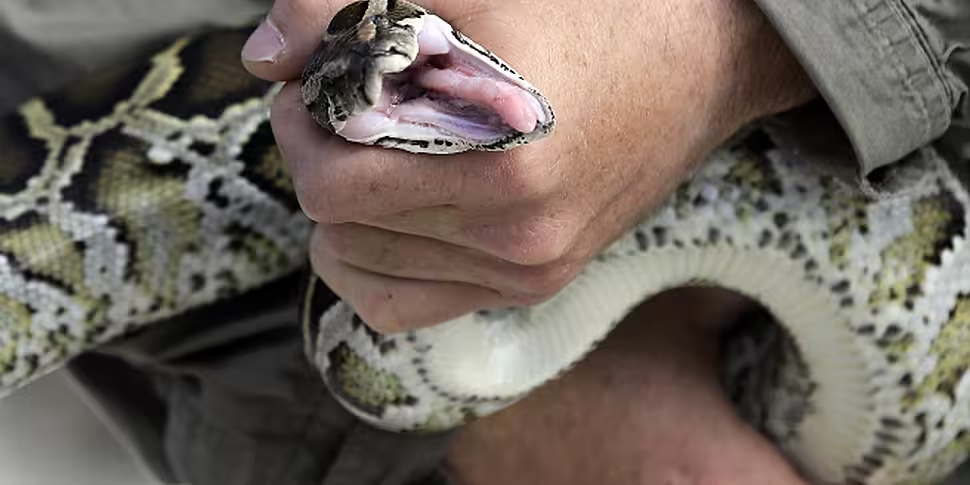The company behind such luxury fashion brands as Gucci, Saint Laurent and Alexander McQueen is scaling up its supply of snakeskins by opening its very own python farm in Thailand.
Kering is responding to huge public demand for python leather, spurred on initially by Gucci's Alessandro Michele spreading the reptilian look all over his SS2016 collection and gaining steam as celebrities such as Rihanna adopted the look on red carpets.
The Guardian reports that the farm will start producing adult skins in 2018, with a "significant number" expected to be ready for use by 2020.
The Paris-based fashion giant stated that it was aiming to provide a "sustainable and responsible" source of skins and ensure that the practice was done "to the highest standards".

Kim Kardashian's snakeskin handbag at Nickelodeon's 24th Annual Kids' Choice Awards. Picture by Vince Bucci AP/Press Association Images
Kering's chief sustainability officer Marie-Claire Daveu said that breeding stock would be raised in "the best conditions for animals, farmers and the ecosystem".
The move comes as animal rights organisation ramp up their criticism of the use of exotic animal skins in fashion.
Peta revealed recently that it bought shares in the LVMH fashion house, which owns the likes of Dior and Louis Vuitton, to fight perceived animal rights abuses from the inside. It already took stakes in Hermes and Prada as it fights their use of alligator and crocodile.
Kering will continue legally sourcing skins from the wild, as it claims this can support the protection of the animals in their own habitat and provide employment in local communities.
It is also involved in the Python Conservation Partnership (PCP), a body has been looking at ways to tackle the black market for illegal python skins, which makes $1bn annually.
According to the PCP, roughly 500,000 skins are now imported legally from south-east Asia into Europe each year, up 40% on the figure a decade ago.









